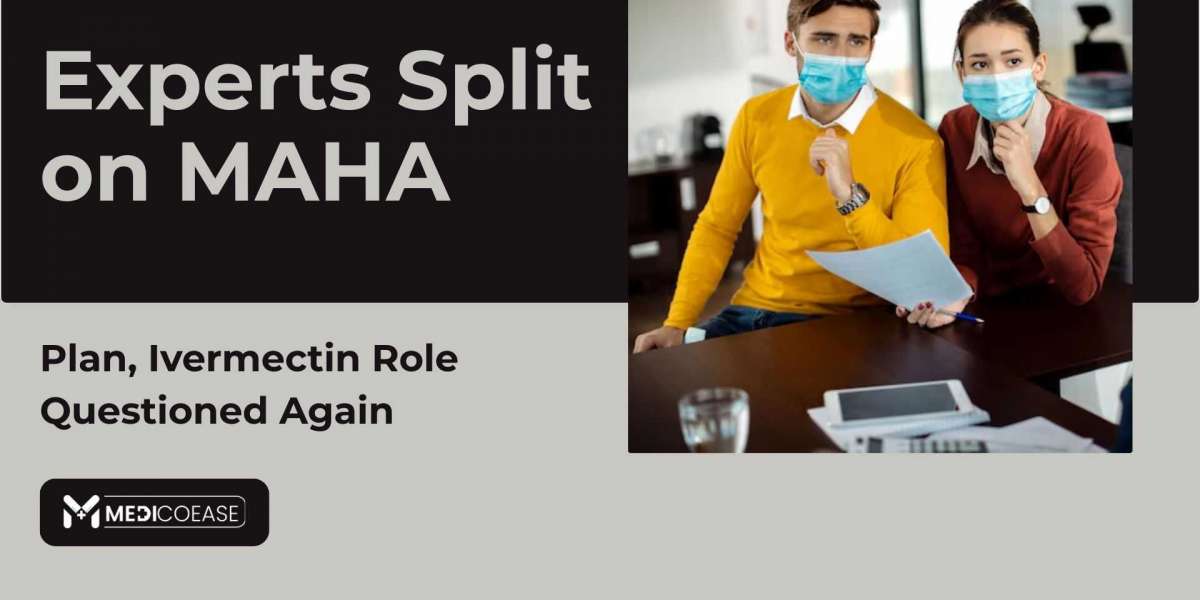The healthcare community in the U.S. is witnessing a heated debate following the launch of MAHA’s latest health strategy. While the plan emphasizes improving patient outcomes and optimizing resources, it has reignited discussions about ivermectin covid use, its potential benefits, risks, and the broader implications for national health policy. Experts remain divided on the drug’s inclusion, sparking conversations that span from clinical practice to legislative policy.
This article examines the key aspects of MAHA’s health strategy, explores the ongoing expert split on ivermectin, reviews evidence-based research on related compounds such as Niclosamide and Fenbendazole, and highlights patient concerns and policy considerations for 2025 and beyond.
? MAHA Health Strategy Raises Strong Debates in U.S. Medicine
MAHA’s newly released health plan aims to integrate modern medical protocols with patient-centered care, but its proposals have triggered intense scrutiny.
Key aspects of the plan:
- Emphasis on accessibility of essential medications for vulnerable populations.
- Integration of both pharmaceutical and complementary health options.
- Focus on preventive care and chronic disease management.
Despite the comprehensive approach, several experts have expressed concerns over the inclusion of certain drugs, particularly ivermectin, citing insufficient clinical evidence for its expanded use. This has led to the ongoing ivermectin inclusion in U.S. health policy debate, which highlights the tension between innovative policy and caution in medical recommendations.
? Ivermectin’s Inclusion Divides Experts Across Multiple Fields
Ivermectin, historically an anti-parasitic medication, has recently gained attention due to its controversial use in COVID-19 treatment. The MAHA plan’s inclusion of ivermectin has triggered differing opinions among specialists:
- Proponents argue that controlled, evidence-informed use could benefit specific patient populations, citing preliminary studies suggesting antiviral and anti-inflammatory effects.
- Critics caution against widespread adoption without robust, peer-reviewed clinical trials, pointing to potential side effects and the risk of misuse.
Medical journals and professional associations remain cautious, often emphasizing that ivermectin should only be prescribed under strict medical supervision. These divisions illustrate the broader expert split and the challenge of reconciling expert opinions in policy-making.
? Public Concern Grows Over Evidence-Based Decision-Making in Policy
Patients and advocacy groups are increasingly focused on transparency and data-driven decision-making. Public scrutiny has grown around MAHA’s recommendations, particularly regarding ivermectin accessibility.
- Surveys indicate a rising ivermectin role conversation among patients and medical professionals.
- Social media platforms have become a hub for discussion, often amplifying both accurate information and misinformation.
The public push for evidence-based policies underscores the importance of clear communication between health authorities, providers, and patients, ensuring that any inclusion of medications like ivermectin is grounded in rigorous science.
? Parallel Studies Assess Niclosamide and Fenbendazole Potential
MAHA’s strategy also acknowledges emerging research on related compounds, such as Niclosamide and Fenbendazole. These drugs, while primarily studied in other contexts, are under investigation for potential antiviral and immunomodulatory effects:
- Niclosamide: Initially an anti-helminthic, some in vitro studies suggest potential activity against viral infections.
- Fenbendazole: Primarily a veterinary medication, it has been explored experimentally for immune response modulation.
Experts caution that, despite promising laboratory findings, clinical trials remain limited. Policy decisions incorporating these compounds must carefully balance innovation with safety, echoing concerns seen with ivermectin inclusion.
⚖️ Lawmakers Seek Balanced Approach to Ivermectin Policy Direction
U.S. legislators are paying close attention to the MAHA plan, emphasizing the need for evidence-driven decision-making. Current discussions revolve around:
- Regulating accessibility to ivermectin for approved indications.
- Monitoring off-label use and preventing misuse.
- Ensuring clear guidance on dosing and administration, especially for vulnerable populations.
These deliberations reflect broader healthcare governance goals: balancing innovation and access with patient safety and ethical responsibility. Analysts note that this debate is emblematic of the ivermectin covid process necessary in modern healthcare systems.
? Doctors Urge Focus on Science-Driven Health Policy Development
Medical professionals across specialties stress that health policy should remain anchored in rigorous scientific evidence. The debate surrounding ivermectin demonstrates the importance of:
- Peer-reviewed research to substantiate therapeutic claims.
- Continuous monitoring for adverse effects and drug interactions.
- Integrating expert consensus with public needs and patient expectations.
A science-first approach aims to prevent premature adoption of therapies that may pose risks, while still allowing room for innovation in patient care. The buy ivermectin conversation reflects the nuanced challenge of balancing differing professional perspectives in policy-making.
? Patients Demand Clarity on Ivermectin Availability in 2025
Patients increasingly seek clarity on how and when ivermectin will be accessible under MAHA’s plan:
- Prescription guidelines must be clearly communicated.
- Online and pharmacy-based access should adhere strictly to medical oversight.
- Education campaigns are necessary to inform patients about approved uses and potential risks.
This public demand reinforces the importance of bridging the gap between expert debate and patient understanding, ensuring that healthcare decisions are transparent and actionable.
? Ivermectin in Modern U.S. Healthcare Trends
Ivermectin remains a focal point in national discussions, both for its traditional anti-parasitic uses and its debated role in COVID-19 management. Key trends include:
- Increasing media coverage of ivermectin trials and off-label discussions.
- Growing attention on ivermectin price and accessibility for patients under approved protocols.
- Reliable purchase avenues, such as Ivermectin 6mg and Ivermectin 12mg, offered by Medicoease.
Healthcare authorities continue to emphasize the importance of adhering to evidence-based protocols while responding to patient demand.
❓ FAQ: MAHA, Ivermectin, and Patient Guidance
Q1: What is MAHA’s new health strategy?
MAHA’s plan focuses on patient-centered care, accessibility, and integration of innovative therapies, while emphasizing safety and preventive medicine.
Q2: Is ivermectin safe for COVID-19 treatment?
Current evidence is limited. Ivermectin should only be used under medical supervision for approved indications.
Q3: Where can I safely buy ivermectin?
Patients can buy ivermectin from Medicoease, which offers regulated tablets in 6mg and 12mg doses.
Q4: What are the risks associated with off-label ivermectin use?
Potential side effects include gastrointestinal issues, neurological reactions, and drug interactions. Only follow physician guidance.
Q5: Are Niclosamide and Fenbendazole safe for humans?
These compounds are primarily experimental for antiviral use; clinical trials are ongoing, and off-label use is discouraged without supervision.
Q6: How does MAHA plan address patient demand?
The plan emphasizes transparency, clear dosing guidelines, and public education to ensure informed decision-making.
Q7: Will MAHA allow over-the-counter ivermectin use?
Currently, access is expected to remain prescription-based under approved indications.
Q8: How can patients stay informed about evidence-based policy?
Trusted medical sources, peer-reviewed studies, and professional healthcare providers are recommended for accurate information.
Q9: Why are experts divided on ivermectin inclusion?
Differences arise from varying interpretations of clinical evidence, risk assessments, and long-term policy implications.
Q10: How will MAHA ensure safety while incorporating innovative therapies?
Through stringent monitoring, adherence to clinical guidelines, and continuous review of emerging scientific data.
Q11: Where can I verify drug information online?
Reliable sources such as Wikipedia provide summaries and references to peer-reviewed studies, but always cross-check with licensed professionals.
? Conclusion: Balancing Innovation, Safety, and Public Trust
MAHA’s latest health plan demonstrates the complexity of modern healthcare policy. The ongoing debate over ivermectin role illustrates the tension between innovation, public demand, and evidence-based decision-making.
As the U.S. healthcare system evolves, balancing patient needs, expert opinion, and policy safeguards will be essential. Clear communication, scientific rigor, and regulated access to medications like ivermectin will ensure that healthcare decisions remain both safe and effective for all patients.





